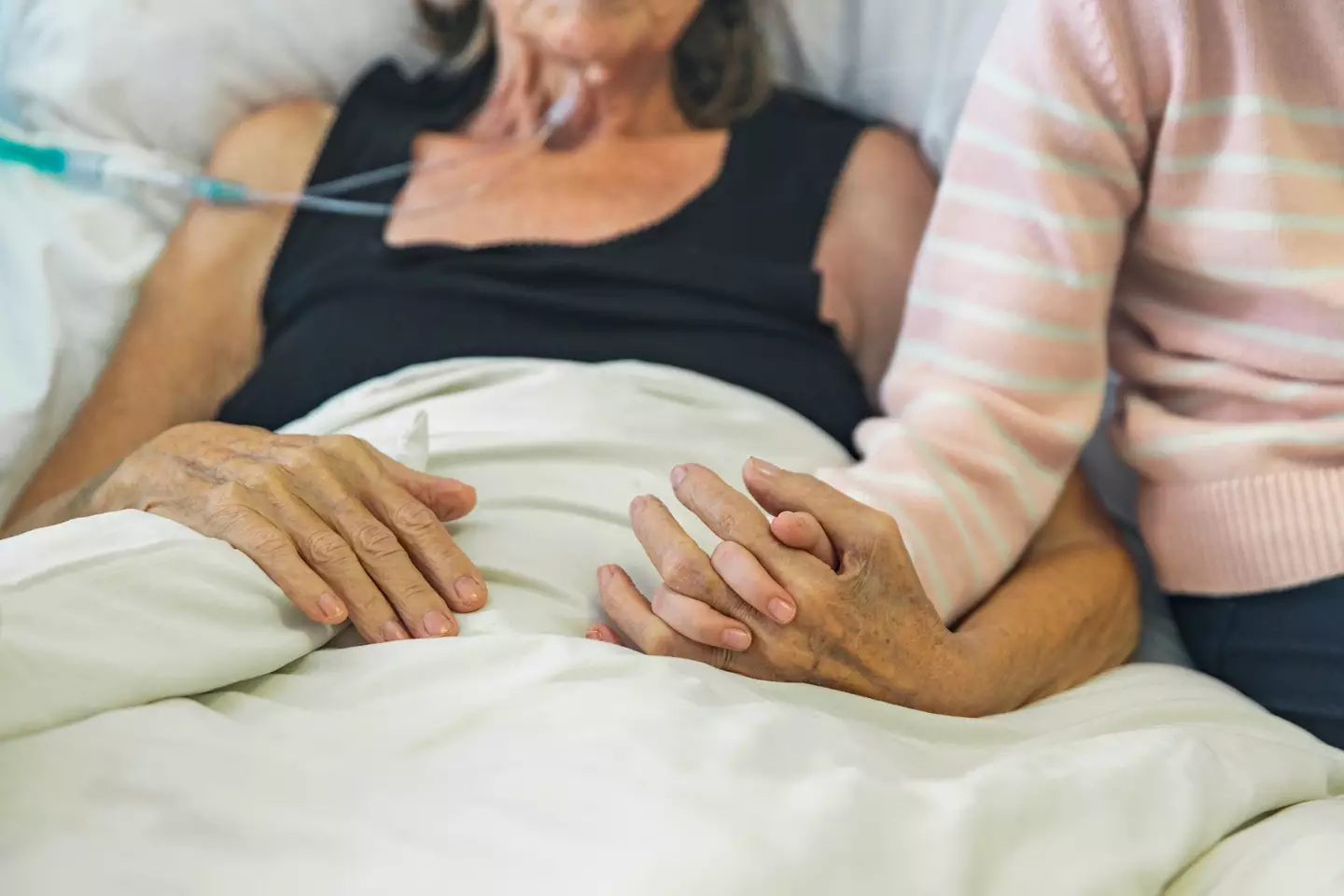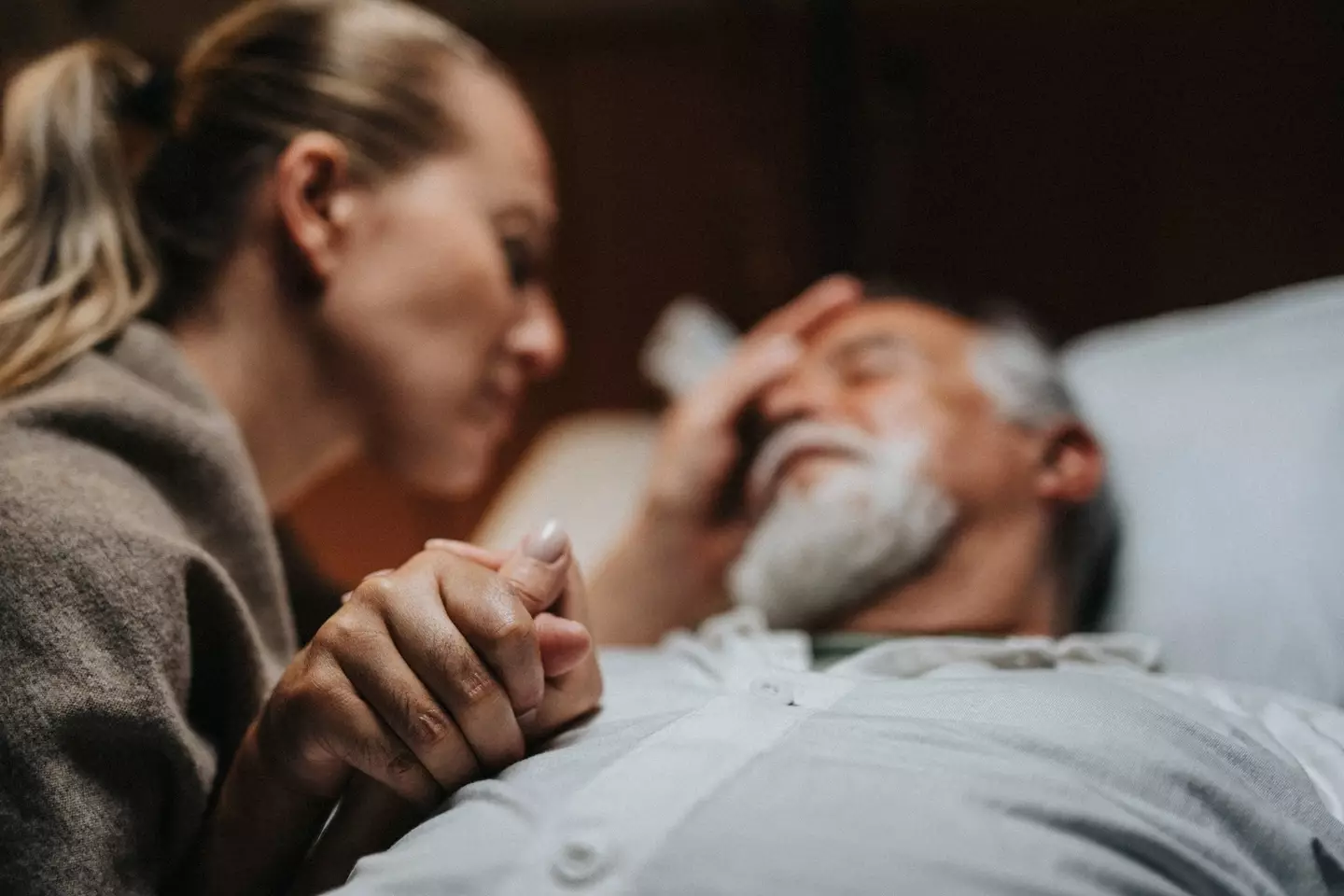A nurse has shared insights into the final words some patients utter before passing away, highlighting the difference from cinematic portrayals.
Though the idea of facing the end of life can be intimidating, those in palliative care often describe it as a peaceful process, much like the end of a journey rather than something to fear.
Dr. Kathryn Mannix, a palliative care physician and author of “With the End in Mind,” spoke in a TED Talk about demystifying death, likening it to the natural process of birth.
Similarly, Julie McFadden, a nurse from California known as Nurse Julie on social media, aims to reassure others based on her extensive 16-year experience with patients nearing the end of life.
In a discussion with NHS surgeon and podcaster Dr. Karan Rajan, McFadden noted that some individuals seem to have a sense of choosing when to die.

“They basically will say, ‘I’m going to die after this date’ or ‘I’ll wait for my daughter’s wedding’. I’ve literally had a patient say; ‘I’m dying tonight’ and then die even though they weren’t actively dying,” she mentioned during the Dr Karan Explores podcast.
She expressed astonishment at this occurrence, stating: “They did not take anything, they did not do it. I could not believe it… jaw on the floor, like what the heck?”
While it might be comforting to think that some have the ability to determine the timing of their death, McFadden also points out that there are certain common phrases uttered before passing.
In an interview with DailyMail.com, she mentioned that her patients often call out to deceased loved ones, such as parents or long-lost partners.
Julie recounted hearing her patients say ‘I love you’ to those present, noting it’s far less dramatic than depicted in films.
“It’s not usually at their last breath. A lot of people think it’s like the movies – a dramatic, last proclamation of something they’ve always regretted or something they always wanted everyone to know. It’s not really like that,” she explained.
She added that phrases such as ‘Thank you,’ ‘I forgive you’, ‘Please forgive me’ and ‘Goodbye’ are also commonly heard before death.
Interestingly, she noted that bilingual patients might switch languages as death approaches.

She elaborated: “Their first language is Italian but they’ve been living somewhere where they’ve been speaking English for 50 years, but when they’re getting close to death, they’ll revert back to speaking Italian.
“And their family hasn’t been hearing them speak Italian for years and years and years and now they’ll only speak Italian, or only speak some like random Yiddish language from their hometown that they haven’t been to and 80 years or something crazy.
“Sometimes they’ll say things that just don’t make sense. But sometimes, they don’t make sense to us, but they might make sense to them. There’ll be saying, ‘I just need to go home.'”
The term ‘home’ can be interpreted as an afterlife, with Julie adding: “People constantly talk about home or going somewhere else, or needing to leave they’re going on a trip.”
Regarding regrets and final wishes, Julie, whose hospice cares for those with terminal illnesses, reflected: “Speaking with people daily who are dying, the biggest thing is not appreciating their health.
“We take a lot of things for granted – being able to see being able to eat, swallow, walk, live completely pain free. A lot of people say they didn’t appreciate that and they wish they would have.”
She noted that many regret having worked excessively and some, particularly women, expressed remorse over dieting and body image concerns.
For those dealing with loss and seeking someone to talk to, GrieveWell is available at (734) 975-0238 or via email at [email protected].

